Bedroom hacks that make waking up on dark mornings easier, according to psychology experts
Spring out of bed refreshed when the moon’s still up with our experts’ advice
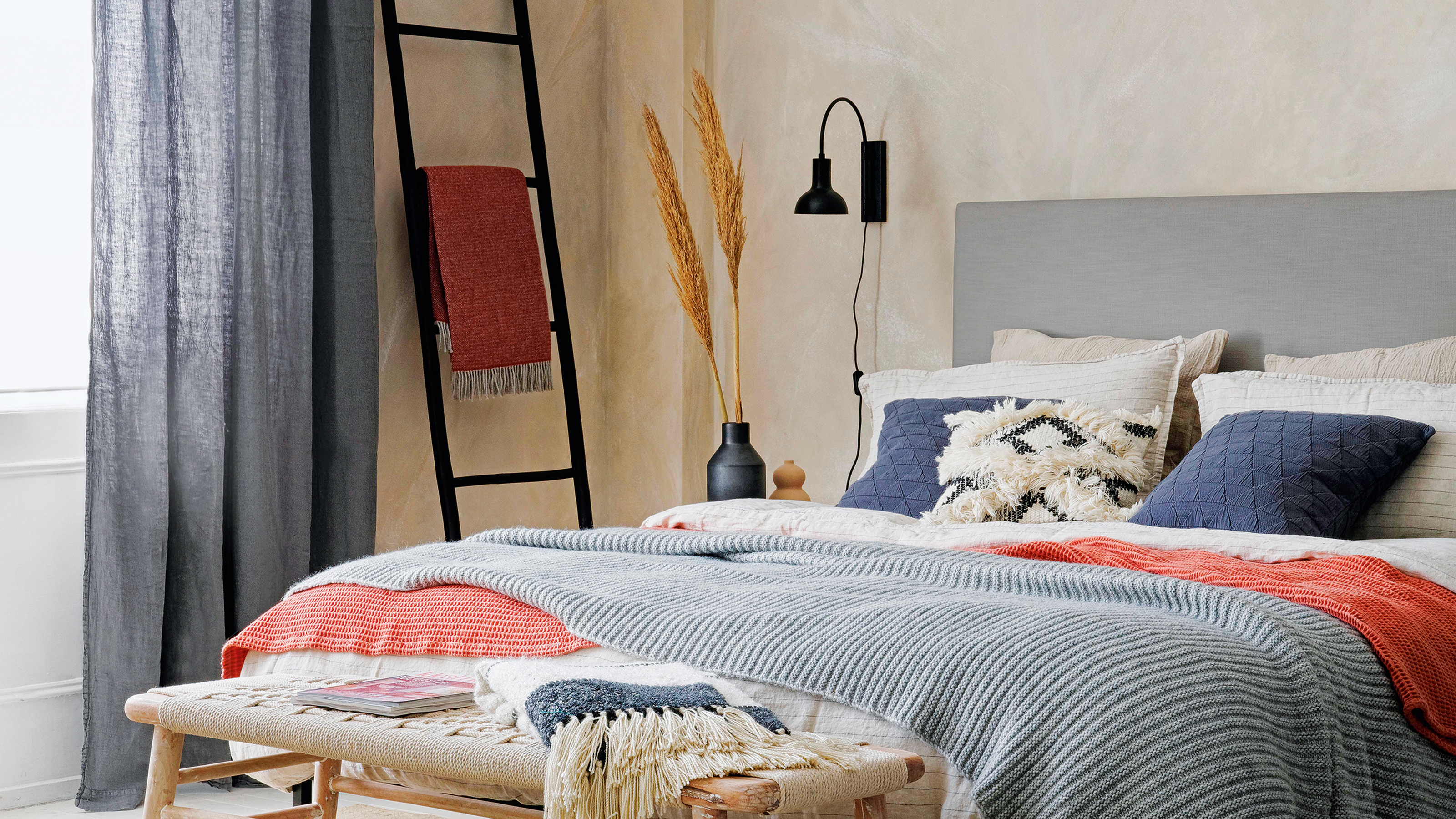

- 1. Use a sunrise alarm
- 2. Flood the room with light
- 3. Use ‘circadian’ lighting to regulate your sleep hormones
- 4. Tempt yourself out of bed
- 5. Kick-start your system with cold water
- 6. Use stimulating smells and sounds
- 7. Keep a yoga mat and stretching bands in your bedroom
- 8. Paint walls a wakey-wakey shade
- 9. Reset your bedroom for better sleep
- FAQs

There are myriad reasons why waking up on a dark morning can be hard to do. If you’re tossing and turning all night, reducing caffeine and stress, turning down the thermostat and making sure you’re sleeping on the best mattress for you are the best places to start for good sleep hygiene. But if you particularly struggle to get up when it’s still dark, it’s not that you’re lazy, it’s because you’re fighting your body’s baked-in rhythms
‘We are very much evolved because this planet has a light/dark cycle,’ Stephanie Romiszewski, an expert sleep physiologist, explains. Light exposure suppresses our levels of melatonin (our sleepy hormone) and when it gets dark, melatonin is produced. When the clocks change and it’s darker for longer, we can feel much less awake because that process of melatonin suppression is reduced.
'It’s very common for people to get slightly less sleep in summer because they are exposed to more light, go to bed later and – if they don’t have a blackout blind or curtain – wake up earlier. Then, in the winter, they feel like they’re getting sleepy far too early.
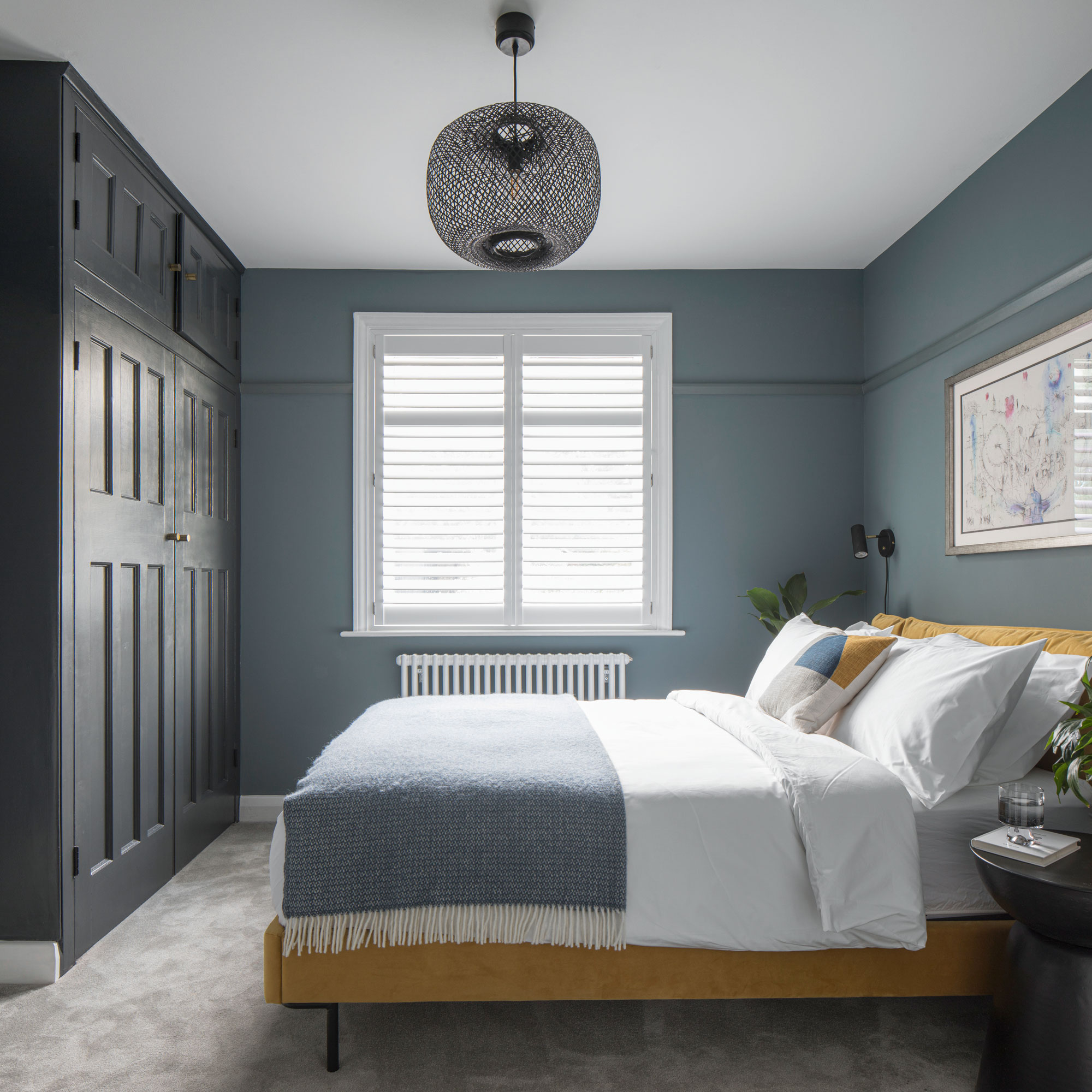
'This affects our circadian rhythms – your 24-hour physiological cycle, not just your sleep/wake cycle – and impacts your mood, temperature and appetite regulation, too. The changes in season can wreak havoc with our sleep quality because our brains like things to be consistent. You could train your circadian rhythms to shift in line with the light/dark cycle, but most of us can’t do that because we have work, family and social lives.’

Stephanie runs The Sleepyhead Clinic in Exeter and is the founder and CMO of re:sleep, an online solution for insomnia. She has degrees in psychology and behavioural sleep medicine and assisted sleep research at Harvard Medical School. She has worked in NHS clinical sleep disorder centres across the UK and appeared in Channel 4’s Secrets of Sleep and the BBC’s Insomnia and Me.
Hacks to make waking up on dark mornings easier
A simple change to your bedroom set-up might be all it takes to establish a wake-up routine that works for you – and sets you up for a better night’s sleep at the end of the day, too.
1. Use a sunrise alarm
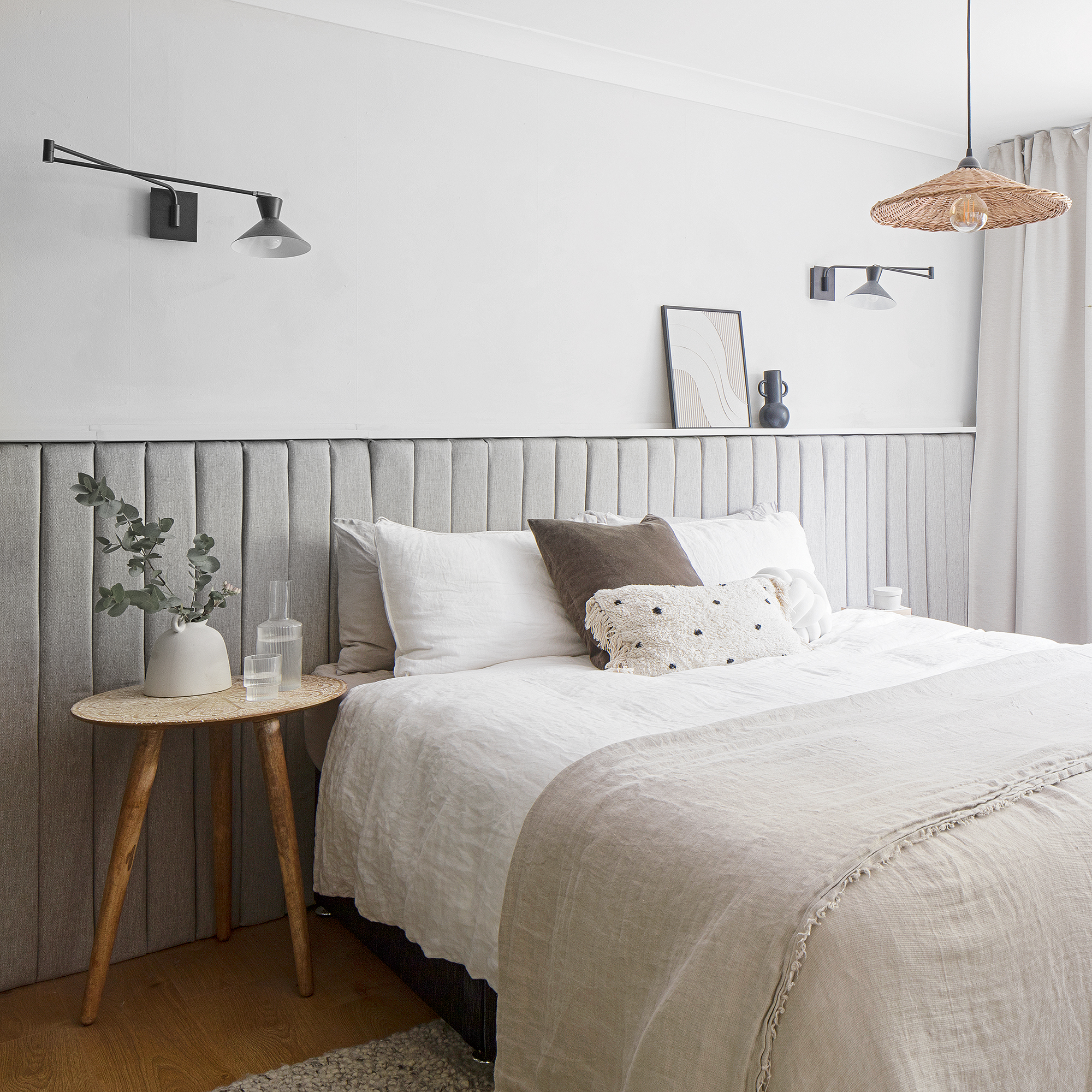
Stephanie Romiszewski says, ‘A daylight alarm is a wonderful way of waking you up because you have a photo receptor in your eye specifically to take in this light and it brings you into a lighter stage of sleep. Instead of an abrupt wake-up, it happens gradually so you don’t feel groggy but are more ready for it.’
These alarms are basically a SAD (Seasonal Affective Disorder) lamp with a wake-up function. If you’re looking to ward off SAD, Stephanie advises getting a light that delivers 10,000 lux of brightness. Most daylight alarms deliver less than this (around 1-400 lux), so you’d have to invest in a medical-grade SAD lamp, too. Rebecca Knight, Ideal Home's Deputy Digital Editor uses the Lumie Bodyclock Luxe 750 DAB and swears by it for getting out of bed for an early morning gym session in winter.
Get the Ideal Home Newsletter
Sign up to our newsletter for style and decor inspiration, house makeovers, project advice and more.
'I wouldn't be able to get up at 6 am each morning if it wasn't for this clock. It is on the expensive side, but the Lumie Bodyclock Spark 100 is a great affordable alternative with all the essential features you need,' Rebecca says.
2. Flood the room with light
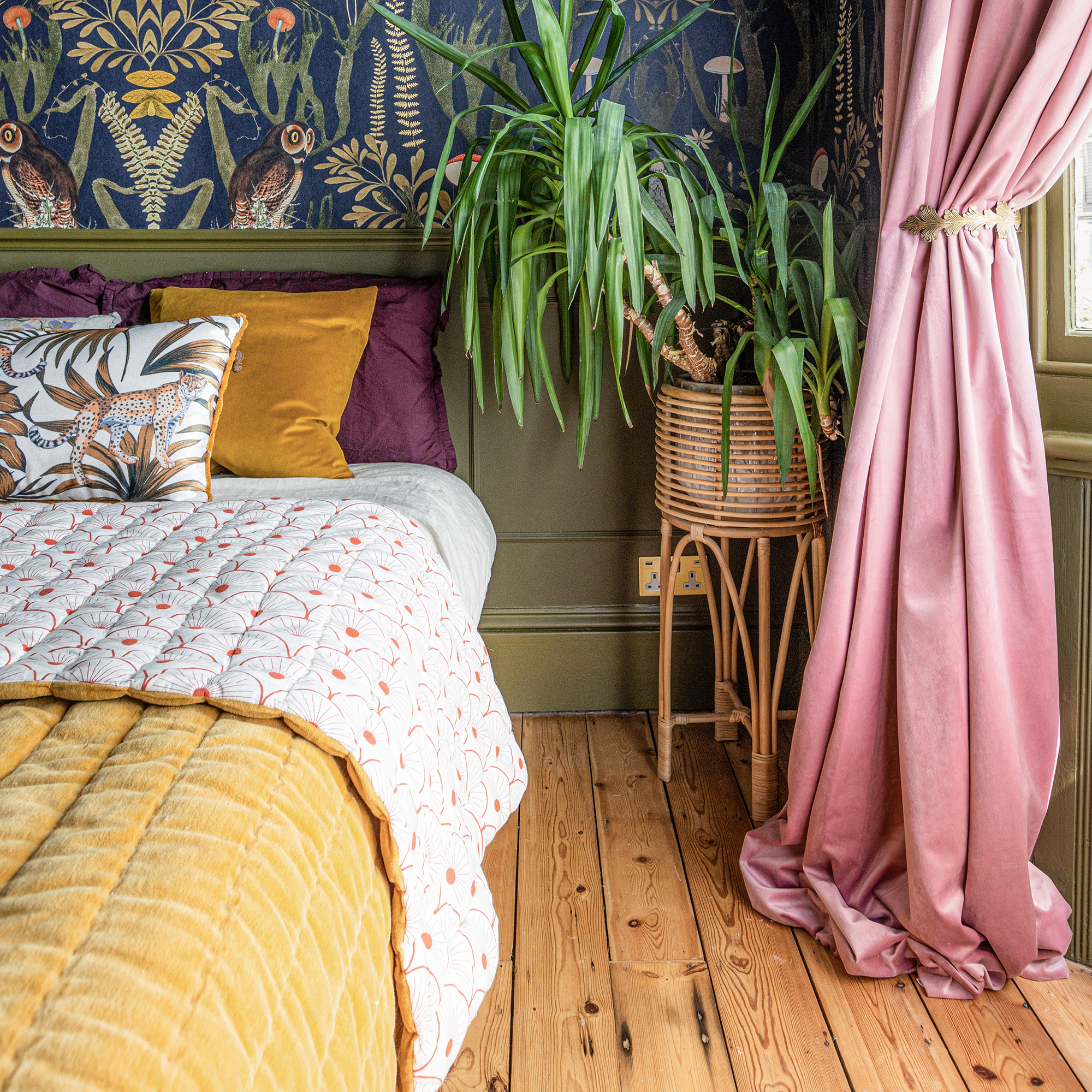
‘It’s really helpful to get light exposure, even if it’s artificial, first thing in the morning,’ says Stephanie Romiszewski. ‘One of the reasons we feel so good when we wake up in the sun in the summer is because it reduces the melatonin, the sleep hormone, and helps to make you feel awake and alert. It indicates to your brain, ‘OK, this is awake time; I’m supposed to be awake.’ In the same way, darkness signals your brain to say that it’s sleep time.’
Having smart lighting can really help here and if you have Alexa or Google Assistant, you don’t even have to reach for your phone to turn the lights on. Some smart light bulbs can even be programmed to switch on and off at set times.
Tech journalist Chris Haslam loves the Philips Hue range of smart lighting and has it in his own home: ‘It’s unquestionably the best system available,’ he says. ‘And while it can be a little confusing to navigate around the settings to get just what you want, that is testament to the huge amount the Philips Hue ecosystem can do.’
3. Use ‘circadian’ lighting to regulate your sleep hormones
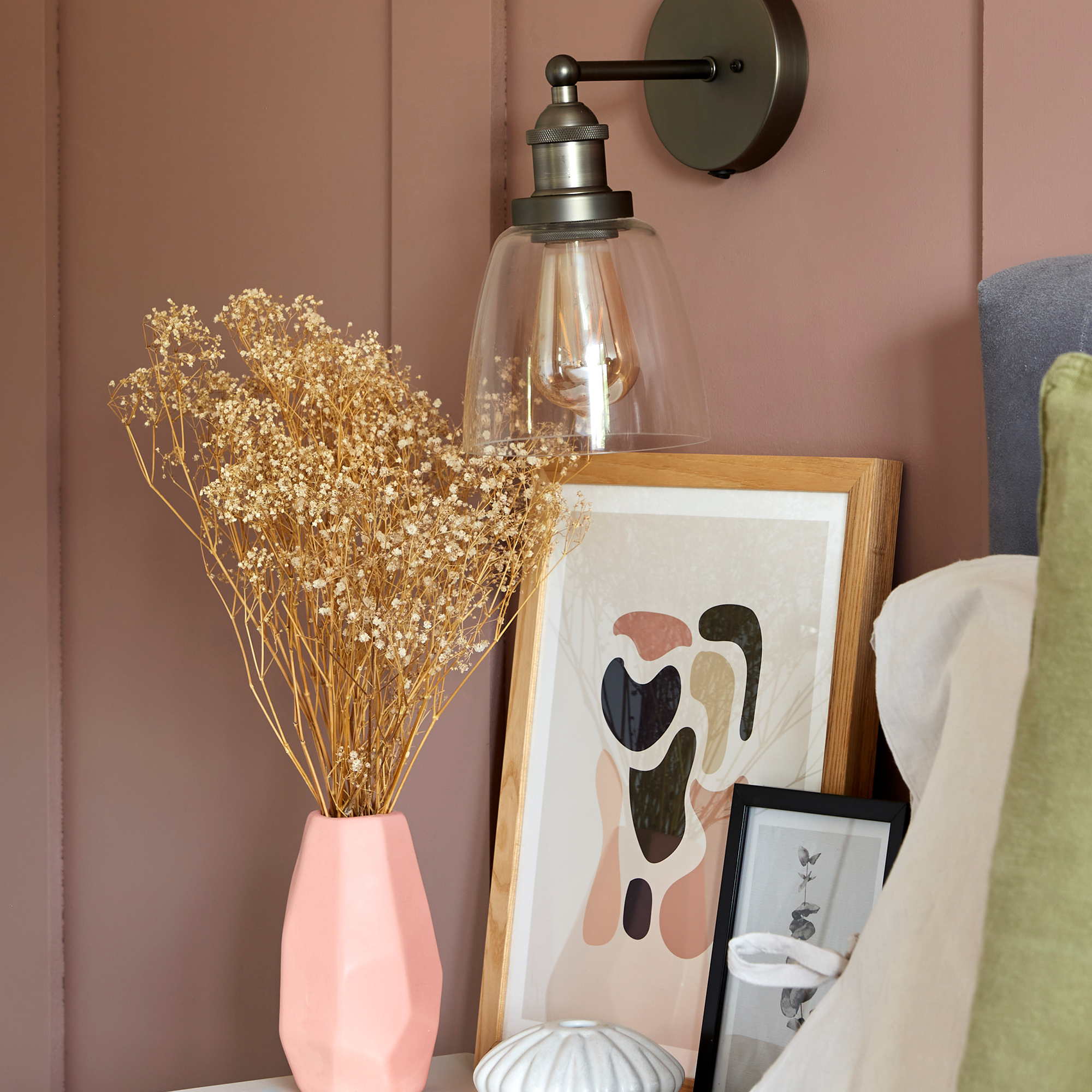
In the absence of natural daylight during the winter months, you can manipulate your own circadian rhythms by using lighting to regulate your melatonin levels. Dimmable lights will become your best friends.
Piero de Marchis, director of Detail Lighting explains, ‘No matter where you are in the home, a controlled dimming system is always preferential to allow full control and flexibility throughout the day. Circadian or “tunable” lighting follows the rhythm of our 24-hour body clock. It is there to assist with sending night and day signals to the brain when natural light is in shorter supply. A wide spread of light at 6,000 kelvins, which is a very high brightness level, is perfect for morning, while a low brightness of 24,00 kelvins is ideal for relaxing.’
Add a range of colours with smart light bulbs, and your lighting will be fully sleep-friendly: 'Colour tuning combines light intensity and colour to mirror the cycle of light and day. For example, during the day cooler colours are better for alertness, whereas at night warm colours can be used to mimic the sunset or sunrise.’
Tech journo Chris Haslam likes the simple-to-set-up smart light bulbs from Lifx for this: ‘The Lifx app is nicely designed and offers some great settings ready-programmed for you, including Day & Dusk that starts off with a gentle wake-up using soft whites, brightens up during the day to help keep you focussed and in the evening reverts to a calming amber glow to help you relax.’
4. Tempt yourself out of bed
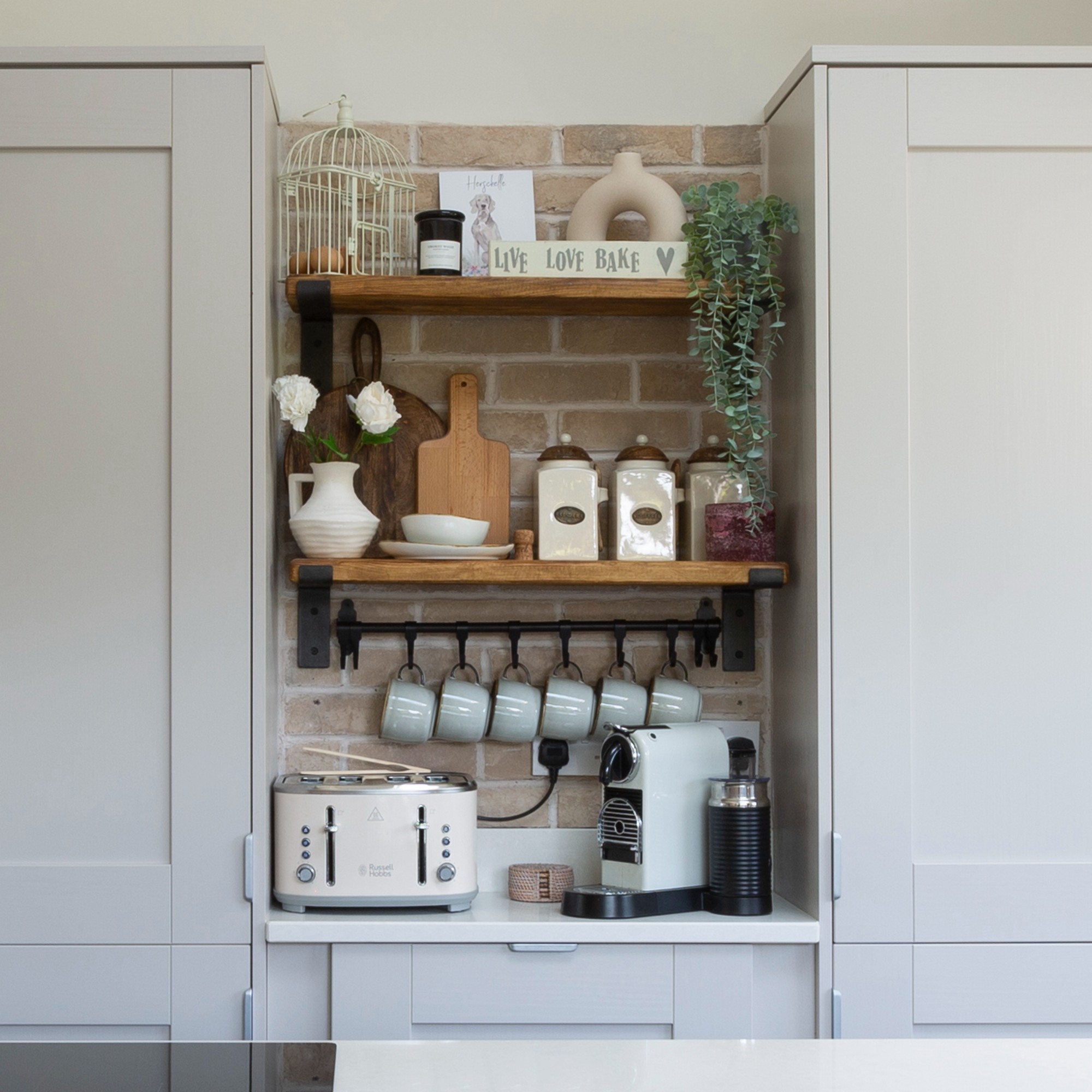
Knowing there’s a pain au chocolat waiting for you is one way to bribe yourself out from under the duvet, but some home automation could ease you out of the wake-up trauma, too. For example, set your smart thermostat so the heating comes on a few minutes before your alarm goes off, so you’re less likely to hide under the covers rather than expose yourself to the cold.
And how about waking up to the smell of fresh coffee? Coffee expert, blogger and Youtuber Kev Lewis says, ‘The Sage Precision Brewer is an amazing filter brewer that has an auto-start function, so you can set it up to brew a full pot for you to wake up to in the morning.’ If only bean-to-cup will do, Kev says, ‘If you want a black coffee, a smart machine could do this for you if you leave the cup on the drip tray the night before.
'For example, the EQ range from Siemens with Home Connect and the TS Smart from Melitta.’ If you want to literally reach out to the bedside table to grab a cup of the black stuff, Kev says the Barisieur coffee alarm clock is like ‘a teasmade for coffee. It only makes one cup, though,’ he warns, ‘so it seems it’s made only for single people.’
5. Kick-start your system with cold water
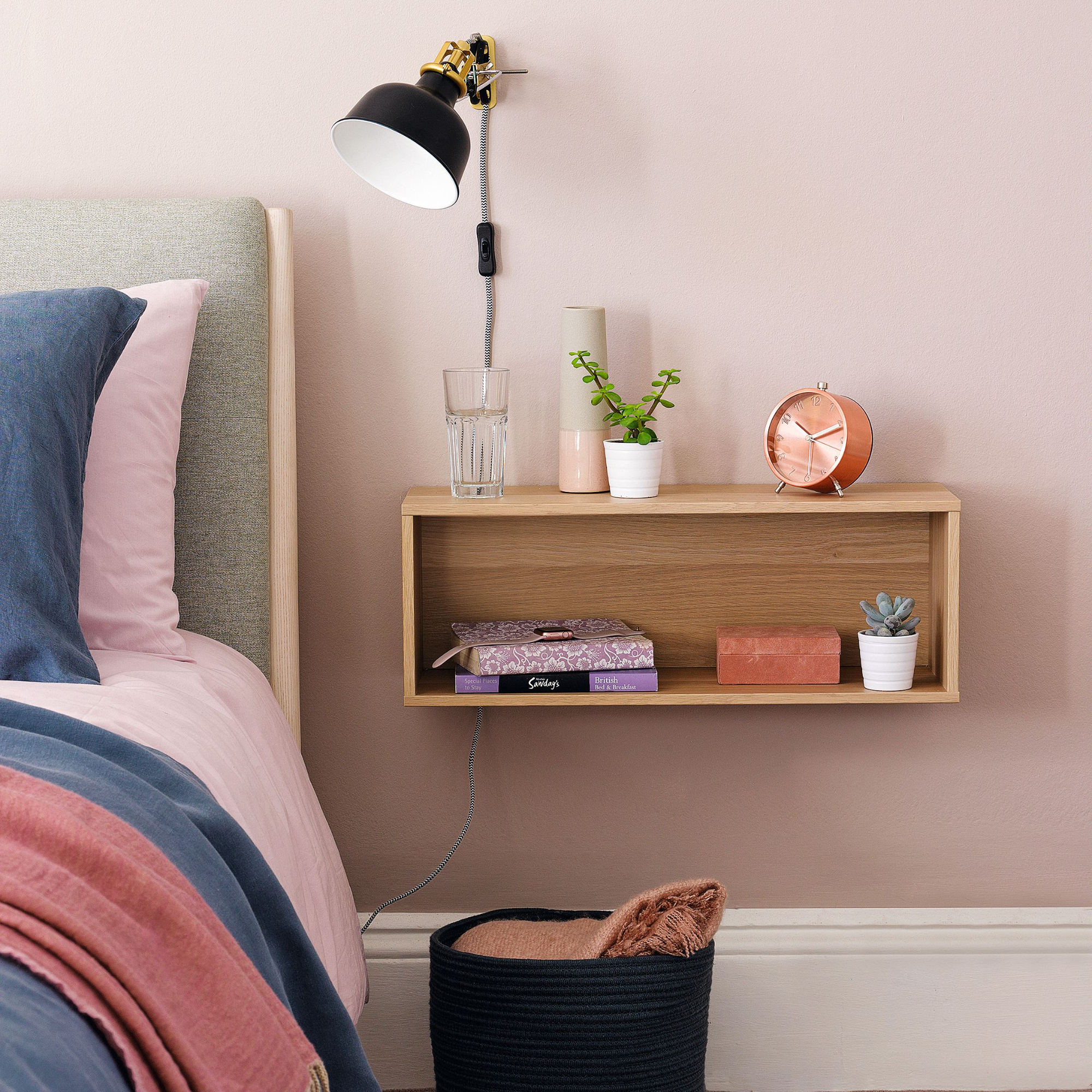
‘Keep a glass of water by your bed,’ advises Tom Murfitt, clinical director of Oxford CBT, ready to chug down when you wake up. ‘This is for mitigating the morning brain fog caused by dehydration during sleep.’
Celebs including Fearne Cotton and The Great British Interior Design Challenge judge Sophie Robinson swear by an ice-bath plunge for a mental-health-boosting jolt, but proceed with caution. The surge of adrenaline, noradrenaline and cortisol it produces can shock the heart. Stephanie Romiszewski advises, ‘It’s a very zeitgeisty thing to do, but I would say that ultimately there are far easier ways to set your circadian rhythms while being comfortable at the same time!’
6. Use stimulating smells and sounds
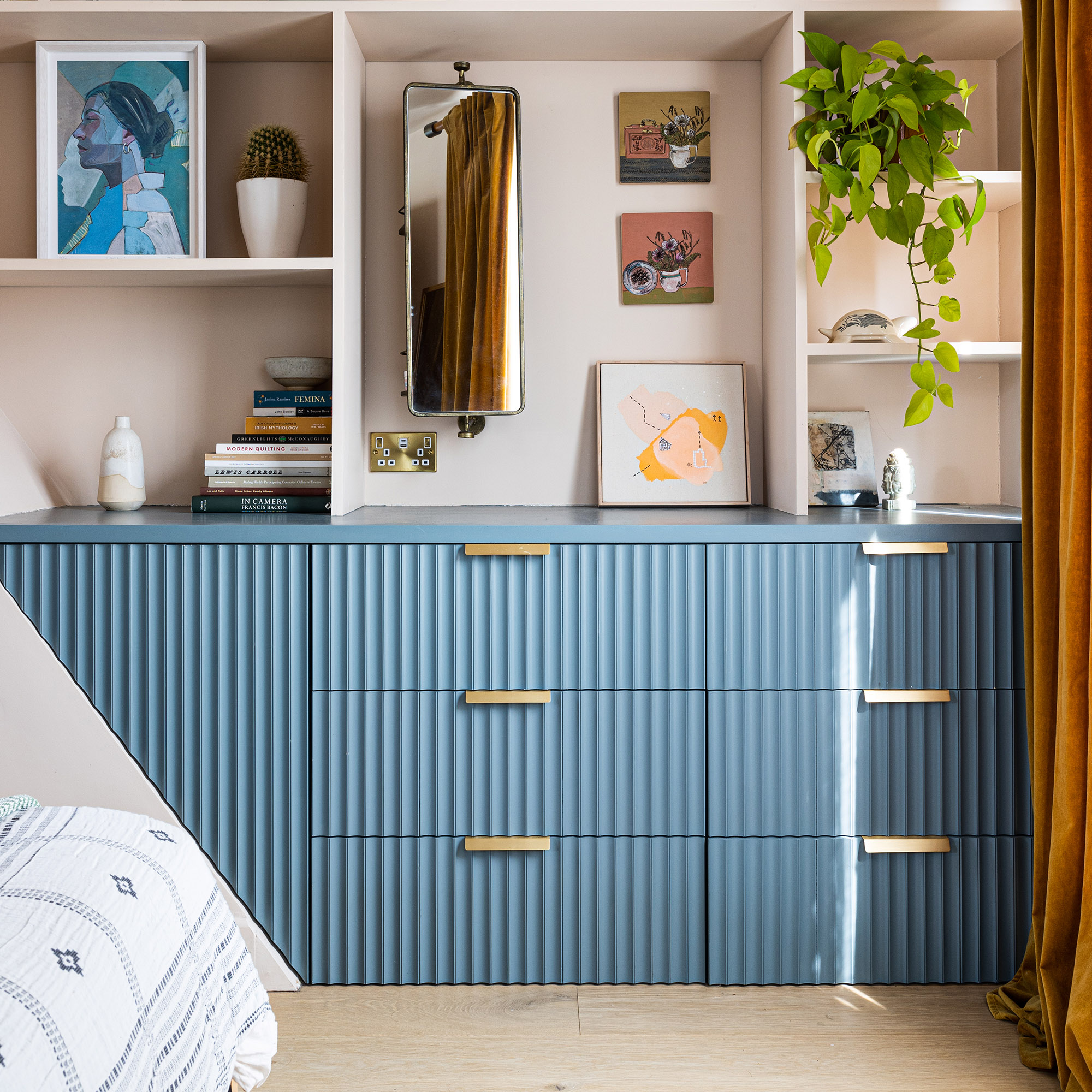
Our sense of smell is incredibly powerful. Neuroscientist Tara Swart explains, ‘The olfactory nerve goes from your nose to an area of the brain close to the memory and emotion centres. The nerves from all our other sense have to travel a longer distance.’ A few drops of essential oil on a hankie with a scent to wake you up would give you the boost you need.
Marie Hackman, principal tutor at Rosewood Aromatherapy College in Nottinghamshire recommends these scents: ‘Peppermint, spearmint, lemon or lime for feeling energised. To feel more awake, lime or rosemary.’
Have a Bluetooth speaker for streaming sounds in your bedroom, too. Tom Murfitt suggests, ‘Embrace the calming influence of nature by listening to the sound of birds or incorporating morning nature sounds into your routine as you prepare for the day.’
7. Keep a yoga mat and stretching bands in your bedroom
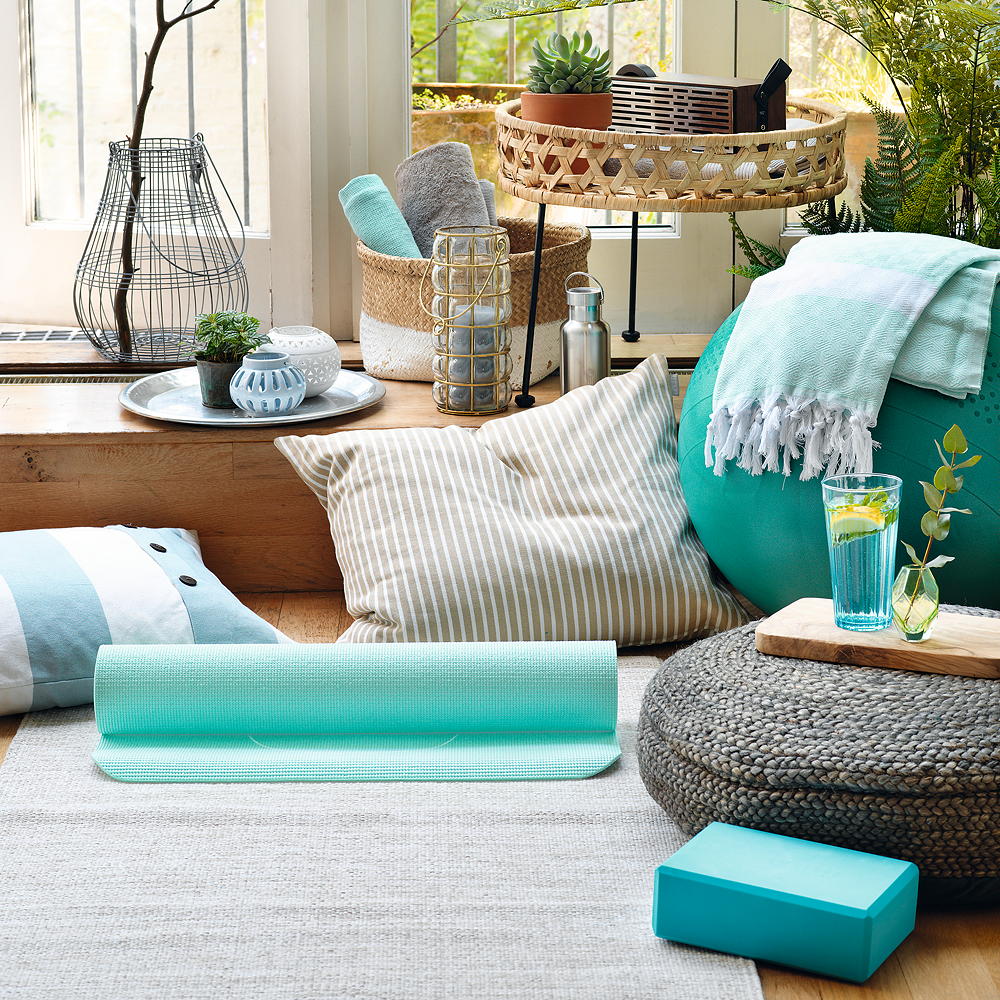
You know how dogs and cats always wake up, yawn, then do a biiiiiig stretch? We should be doing the same thing: Stephanie Romiszewski explains, ‘After getting up at the same time every day and exposing yourself to bright light, the next most influential thing on your fatigue levels is going to be moving your body because you’re telling your brain, “I no longer want to be asleep”. You’re sending the opposite signal when you stay lying in bed after you’ve woken.’
8. Paint walls a wakey-wakey shade
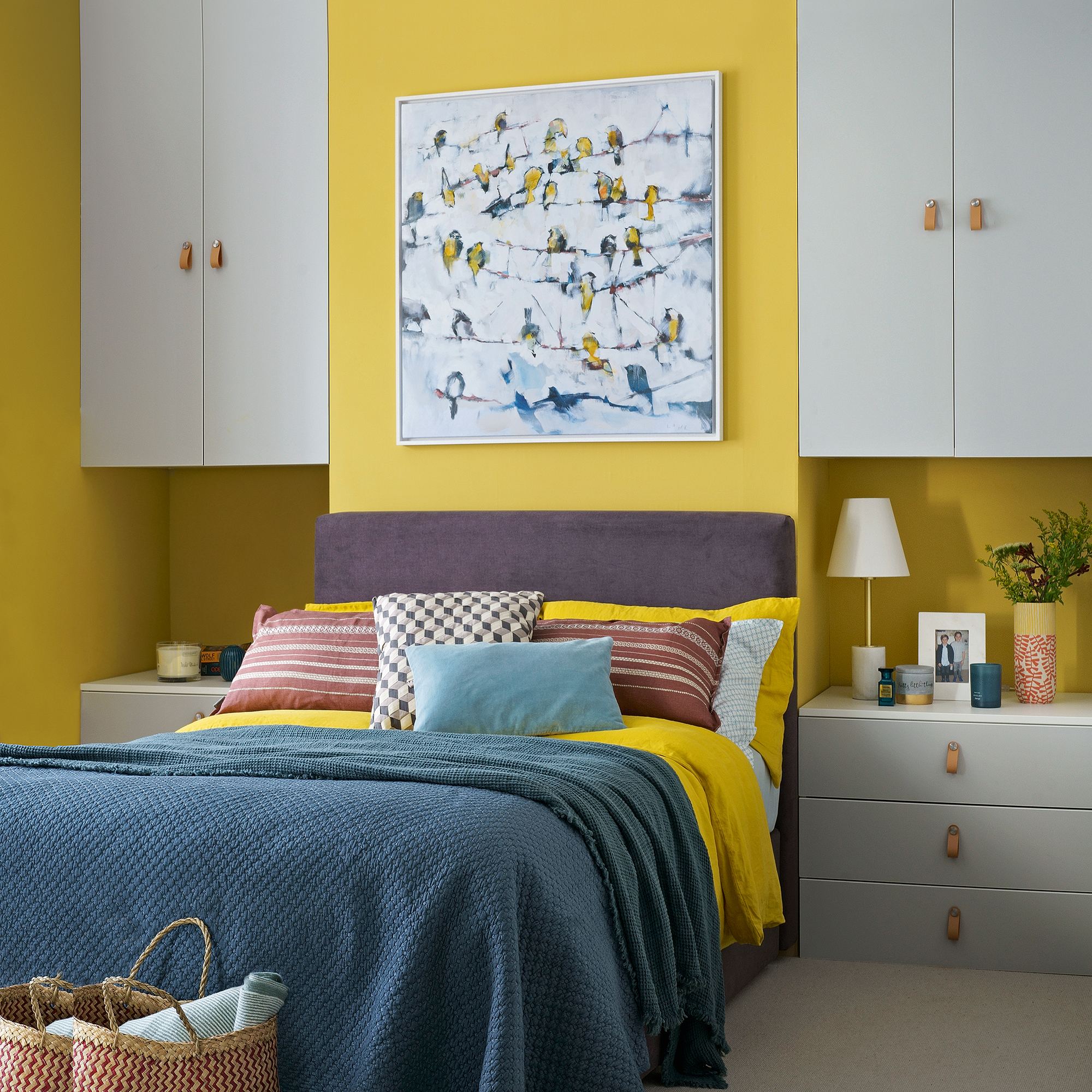
There are several ways to design your bedroom to help you become a morning person, but painting in a wake-up colour is particularly powerful. Karen Haller says, ‘From a colour psychology perspective, colours that can stimulate are bright, vibrant, saturated colours. Turquoise can keep the body and mind awake – it’s a great boost in the morning, so great in the bathroom. Yellow can stimulate the nervous system and is like bringing the sunshine in. Red is what I call colour’s equivalent of drinking a double espresso! I advise my clients that just a splash is needed to get you up and going.’
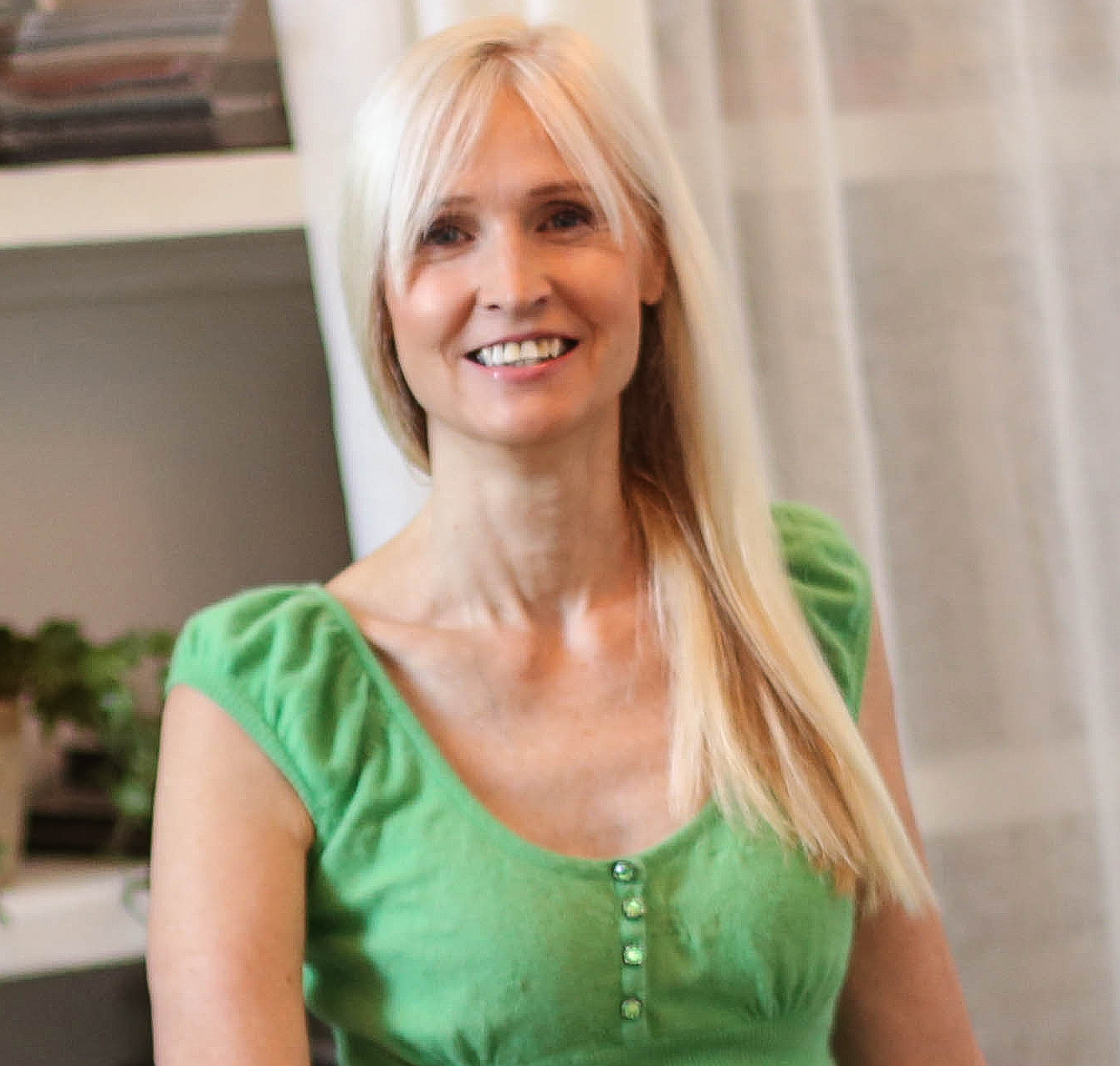
Karen Haller is the leading international authority in the field of applied colour psychology - how colour affects and influences our behaviour. With more than 20 years’ experience, she teaches, consults for businesses, interiors, healthcare and wellbeing with clients including Marks & Spencer, Dove and Samsung. Her book, The Little Book of Colour, was listed in the Sunday Times Top 10 Design Books in 2019.
9. Reset your bedroom for better sleep
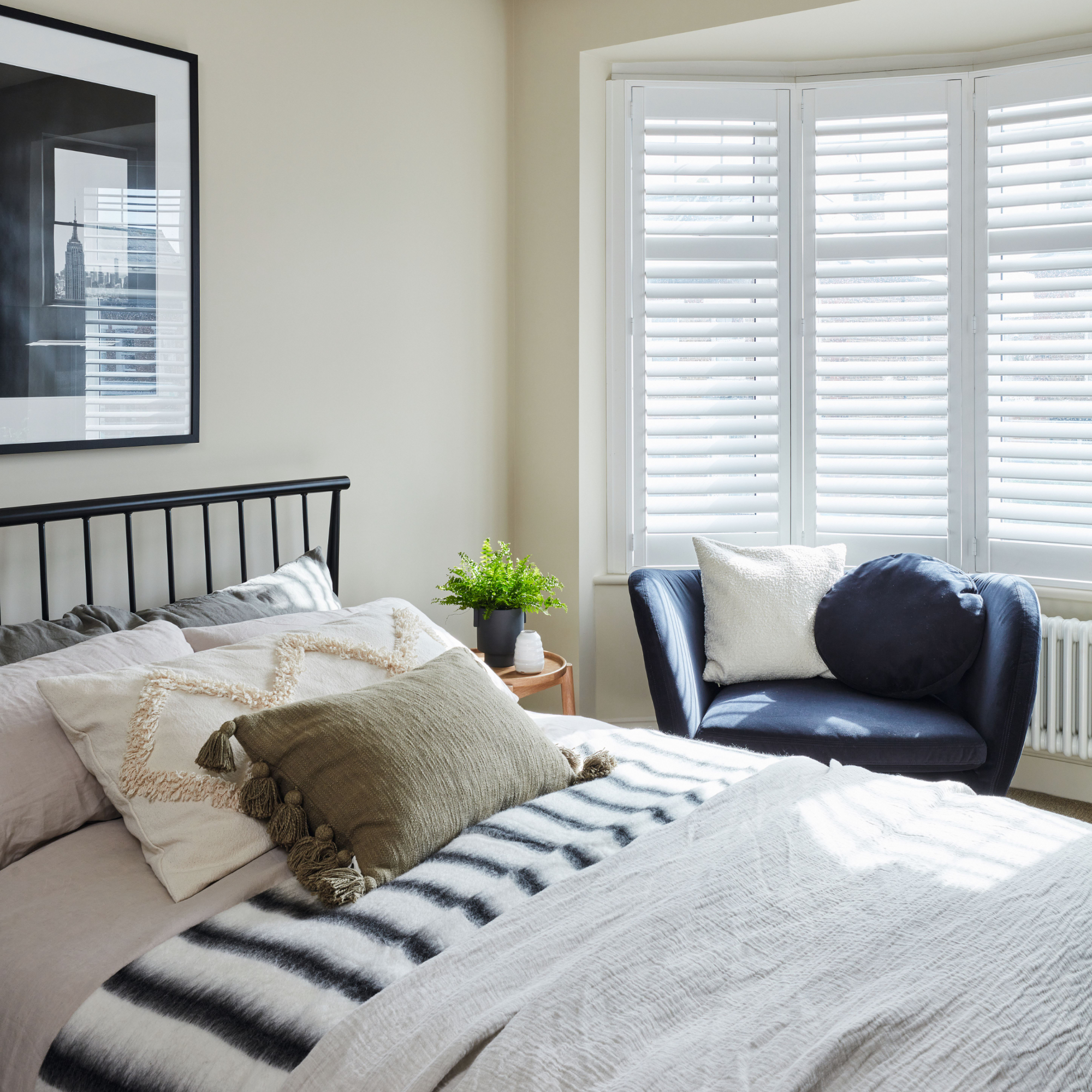
The Sleep Foundation advises, ‘Having the best mattress for your needs and preferences is vital. Investing in a supportive mattress and pillow helps ensure that your spine gets proper support to avoid aches and pains.’
Temperature is also key. The Sleep Foundation recommends sleeping in a cooler room at around 18-20˚C. To keep a steady temperature, make your bed with thin layers of bedding you can peel off or pull over you during the night.
Blocking out all light and sound will prevent disturbed sleep. The Sleep Foundation explains: ‘Avoiding bright light can contribute to your body’s production of melatonin, the hormone that promotes sleep. If you cannot eliminate sources of noise, consider drowning them out with a fan or white noise machine, or wearing earplugs.’
Try keeping a journal by your bed, too: Tom Murfitt says, ‘Journaling before bed is a great way to alleviate stress and anxiety, ensuring more restful sleep.’

Tom has over a decade of experience in providing cognitive behavioural therapy and occupational therapy, as well as being an accredited mindfulness teacher. He has worked in both the NHS and private sector, and founded Oxford CBT in 2012 in response to the increasing demand for fast and flexible access to quality therapy.
FAQs
How can I make waking up in the morning in the dark easier?
Tom advises, ‘Establishing an effective morning routine can contribute significantly to feeling more awake and alert. Resist the temptation to hit the snooze button and instead promptly make your bed to gain a sense of accomplishment. Take a cold shower, splash cold water on your face or get some fresh air as soon as you can. Incorporate a morning workout routine, whether it’s a vigorous workout or a more relaxing activity like yoga, finding what suits you best can set a positive tone for the day.’
James Roy, a neurofeedback therapist at Brainworks adds, ‘Some find that vitamin D supplements can help. Without natural sunlight, our vitamin D production slows and that means we might start to feel low, fatigued, anxious and irritable. We see the brain’s overall energy production start to dim and our mood matches it. A full-spectrum light box is also an excellent way to help top up your vitamin D levels and keep your winter energy up.’
Will going to bed earlier help?
Sleep expert Stephanie Romiszewski says that going to bed earlier can be counter-productive, but getting up at the same time every day is key. ‘If you keep mucking up your wake times, the predictability of your sleepiness in the evening will be lost,’ she explains, ‘so sticking to a good awake time is important. However, sleepiness in the evening can be affected by hormones, stress and environmental changes, so it’s best to wait to go to bed when you’re sleepy. The act of going to bed will not make that happen.
According to Tom Murfitt, the right pre-bed routine is more important: ‘Choose a couple of new habits and stick to them for about 30 days to see positive changes,’ he says.
‘Consider limiting caffeine, alcohol, chocolate and heavy meals close to bedtime. Dedicate an hour before bed to unwind with activities such as a bath, reading or listening to music – nothing too stimulating. Steer clear of work emails and exposure to screens, as this can hinder the production of melatonin, the sleep hormone.’
How can I wake up earlier naturally?
Stephanie Romiszewski believes consistency is key: ‘You’ve got to start by waking yourself up not naturally,’ she advises. ‘You need to decide on a get-up time, set your alarm to that and get up no matter what for a few weeks. As long as you have no sleep problems, you should start to notice that you naturally get up at that time because you’re being consistent.’
Neurofeedback specialist James Roy adds that you can actually train your brain to make you wake up when you want. ‘There is part of our brain located in the parietal lobes in the high rear of our brain which reminds us that it’s time to get up. It is our brain’s master timekeeper and a remarkably accurate one at that.
'There’s an easy trick to it: repeat to yourself before you go to sleep what time you need to wake up, enough times to really drill it into your memory and picture yourself waking up just before your alarm. Now you have set your brain a task, and the rear of our brain holds the intent to wake up at the appointed time.
Your brain will set your sleep rhythm accordingly and when it’s time to wake, your brain will kick into gear and naturally shift you out of sleep state into wakefulness. With a bit of practice, you’ll find that you will wake seconds before your alarm sounds. Allowing yourself to wake naturally by engaging your brain’s own rhythms is a far more comfortable way to greet the day than with an alarm.’
Will you be trying any of these tips out to help drag you out of bed on a dark morning this winter?

Vanessa Richmond has been a freelance writer, editor and editorial consultant since 2021. Her career in magazines began in 1998 and, apart from a four-year stint at women’s lifestyle magazine Red, it has been spent working on interiors titles including House Beautiful, Country Homes & Interiors and Style at Home. She is a former editor of Ideal Home, Country Homes & Interiors and Style at Home magazines. She has also worked for House Beautiful and Red. During her 25 years as a journalist, she has been a sub-editor, columnist, deputy editor and editor. Now she combines freelance writing with being a secondary-school English teacher.
-
 Will a conservatory add value to your home and how can you maximise it?
Will a conservatory add value to your home and how can you maximise it?This is what the pros say
By Amy Reeves
-
 I’ve been looking for a new signature scent for my home and The White Company's new fragrance is the exact summer holiday smell I needed
I’ve been looking for a new signature scent for my home and The White Company's new fragrance is the exact summer holiday smell I neededSantorini smells fresh, summery and sophisticated
By Kezia Reynolds
-
 How to remove algae from garden walls in five steps – and the cleaning product experts rave about for tackling it fast
How to remove algae from garden walls in five steps – and the cleaning product experts rave about for tackling it fastExperts share their top tips for getting garden walls algae-free
By Katie Sims
-
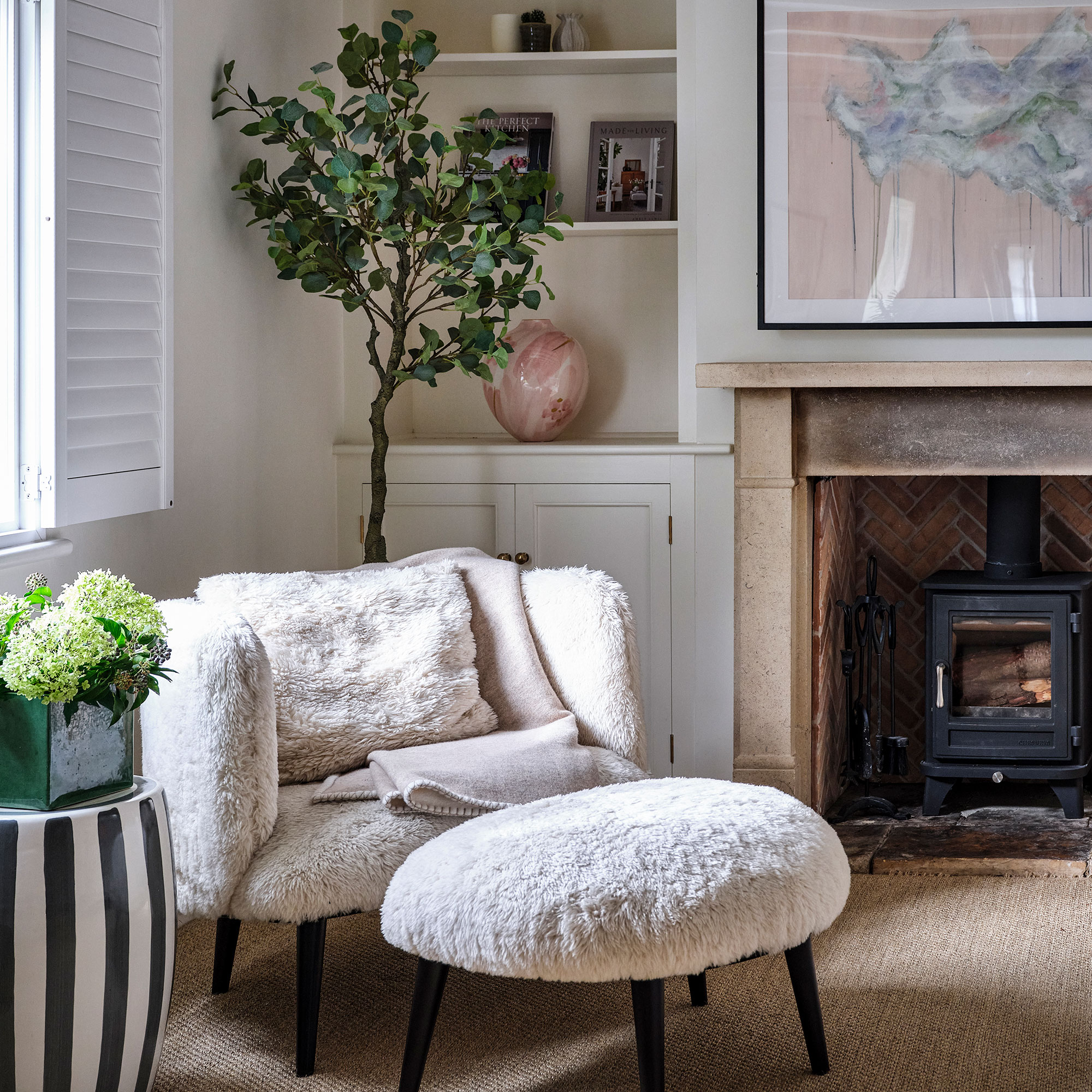 Hygge living room ideas — 6 ways to warm up your home with this Danish concept and cosy aesthetic
Hygge living room ideas — 6 ways to warm up your home with this Danish concept and cosy aestheticHunker down until summer finally arrives with these warming ideas
By Rebecca Knight
-
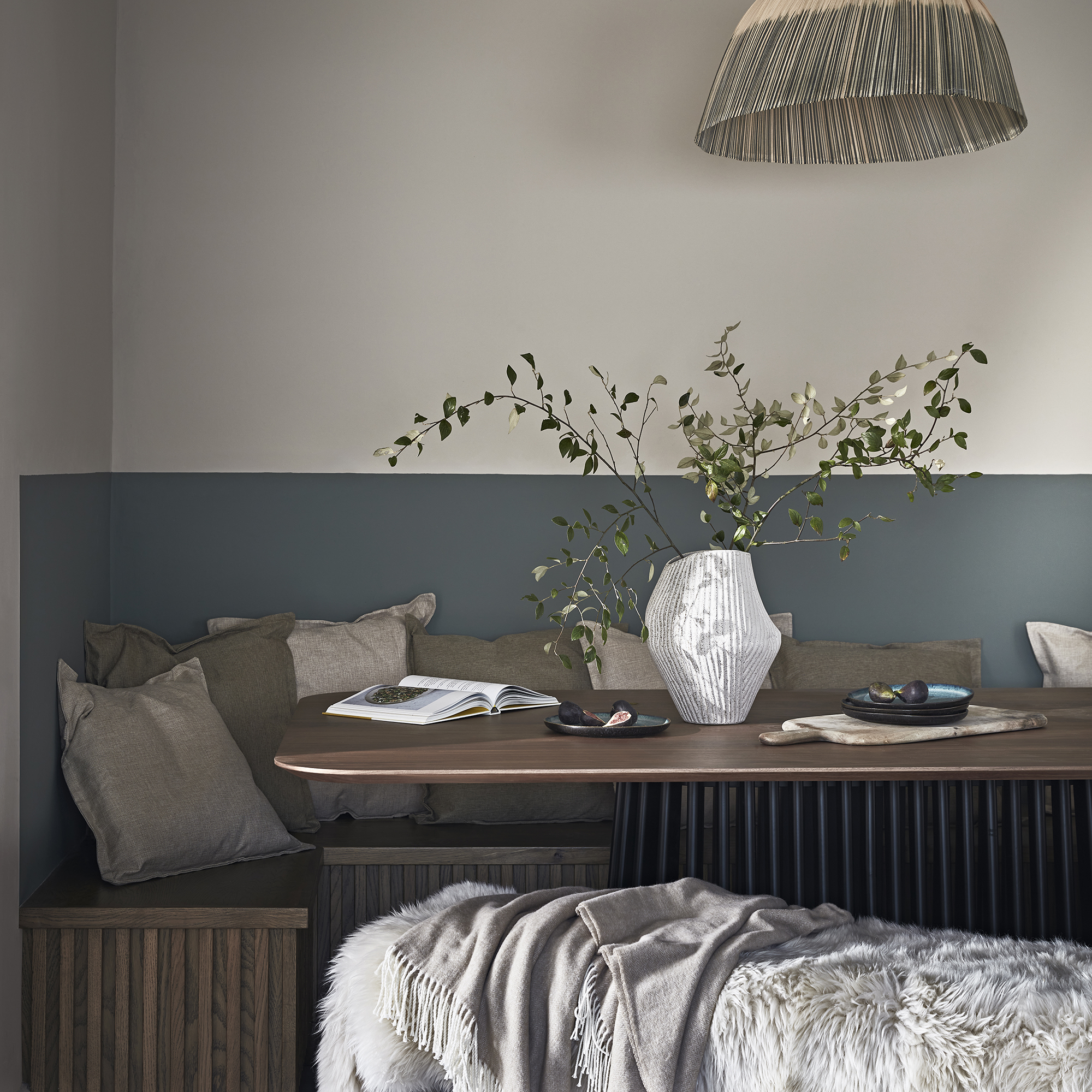
 How to create a sensory home – interiors experts reveal 5 easy ways to style your home and soothe your mind
How to create a sensory home – interiors experts reveal 5 easy ways to style your home and soothe your mindYou can turn any space into a sanctuary by following these simple steps
By Maddie Balcombe
-
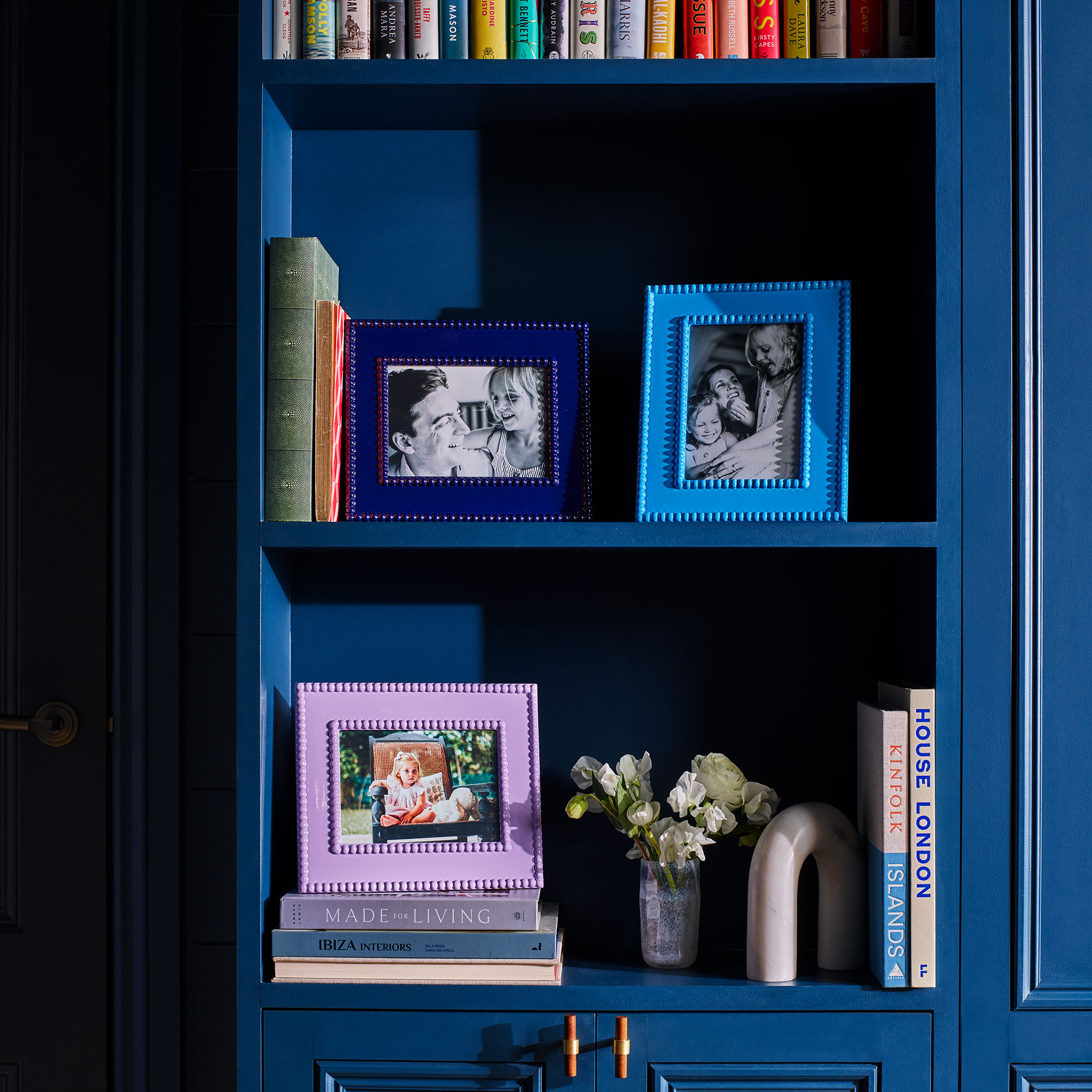
 Can displaying family photos at home make you happier? According to research it can — 5 ways to do it in style
Can displaying family photos at home make you happier? According to research it can — 5 ways to do it in styleHarness the mood-boosting power of looking through old photos by displaying your favourites
By Rebecca Knight
-
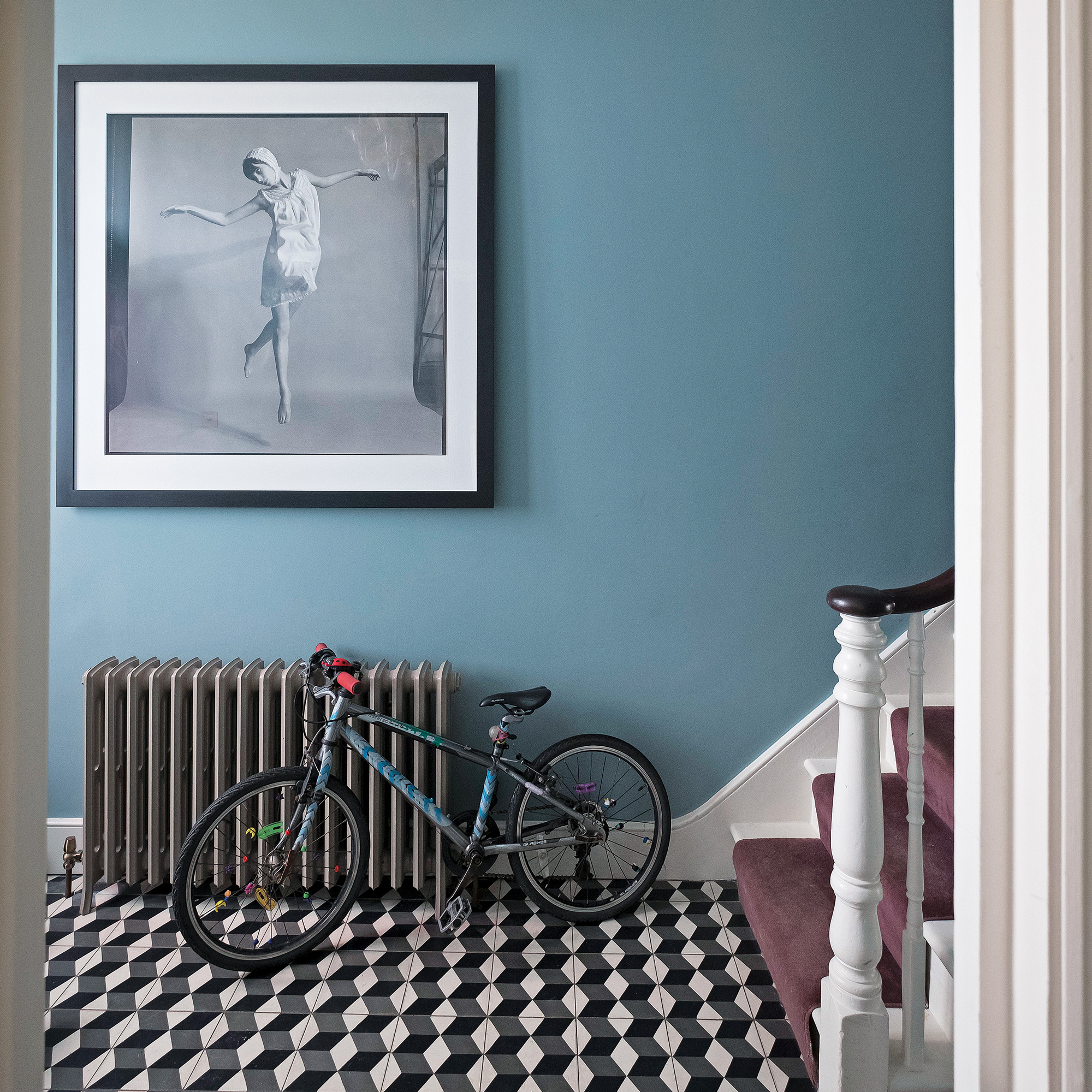 How to make a hallway smell incredible without candles - 7 ways to gently fragrance your entranceway
How to make a hallway smell incredible without candles - 7 ways to gently fragrance your entrancewayGo flame-free to safely scent your entryway
By Vanessa Richmond
-
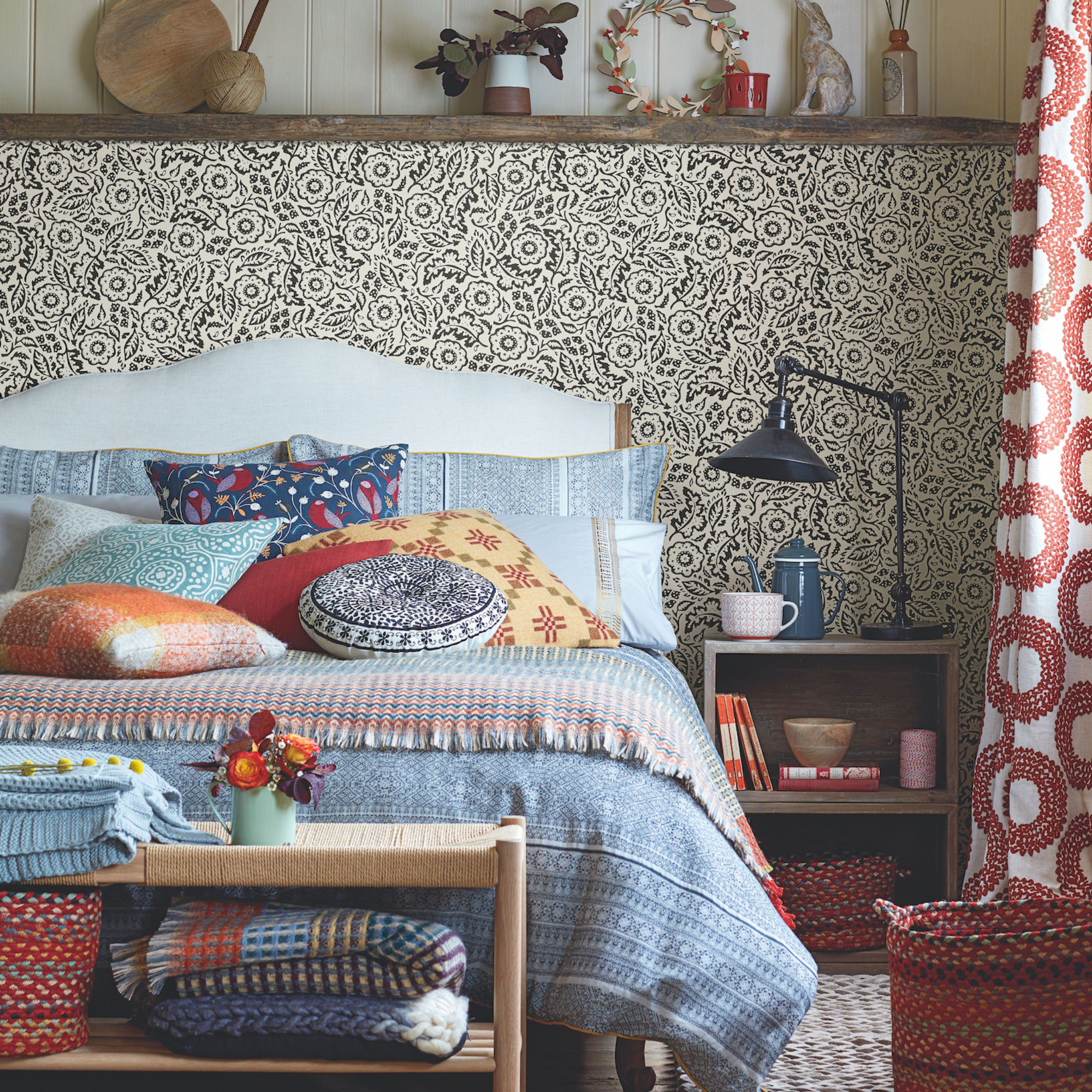 6 ways I brighten my home in January when the Christmas decorations come down, as an interior stylist
6 ways I brighten my home in January when the Christmas decorations come down, as an interior stylistHelp banish the winter gloom with these uplifting ideas
By Laurie Davidson
-
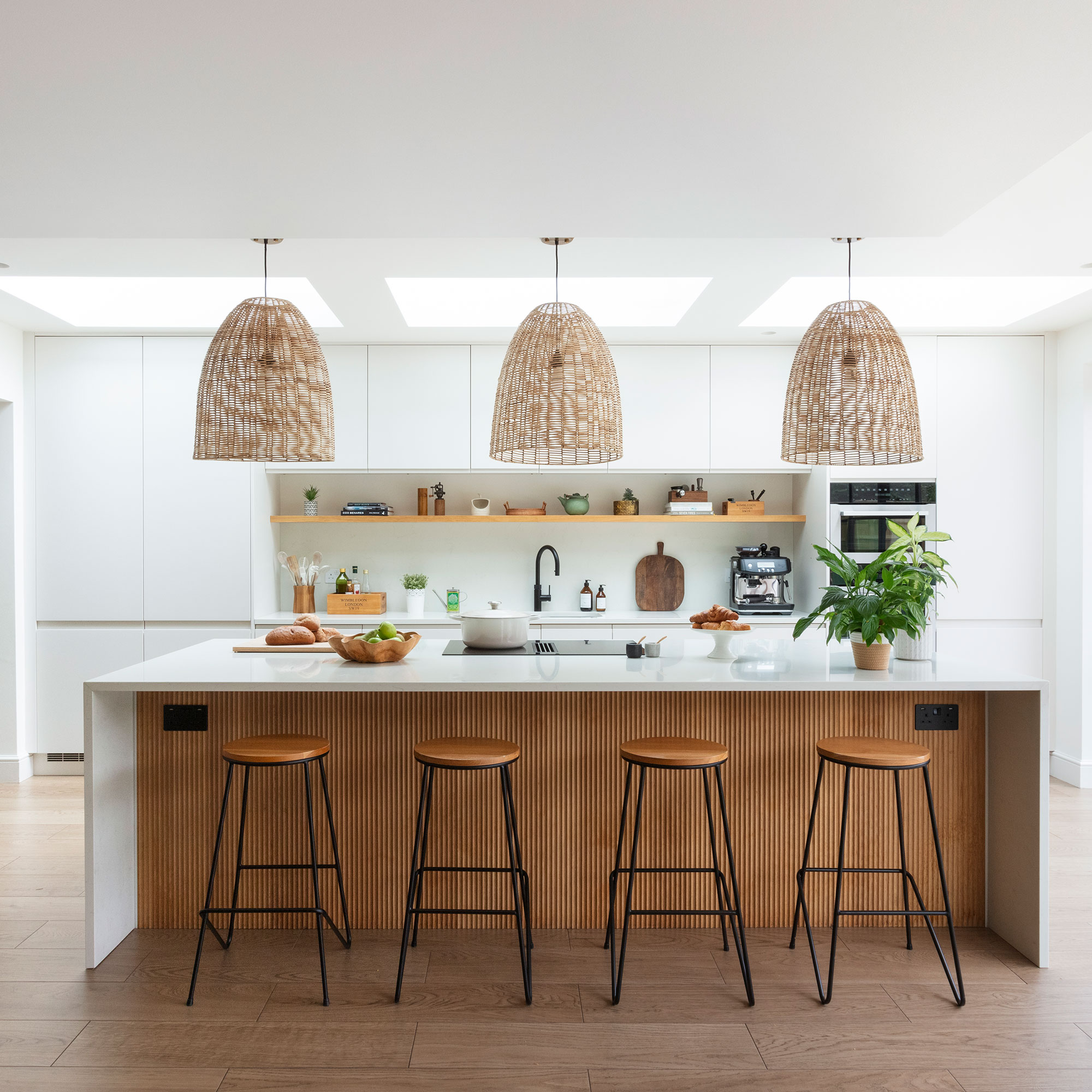 Kitchen hacks to encourage healthy eating habits — 7 ways your kitchen can support healthy living
Kitchen hacks to encourage healthy eating habits — 7 ways your kitchen can support healthy livingMake creating healthy changes easy by following these tips
By Eilidh Williams
-
 How to reset your home after Christmas to restore a sense of calm
How to reset your home after Christmas to restore a sense of calmFollow these 7 steps to get back to normal at home and beat post-Christmas blues
By Eilidh Williams
-
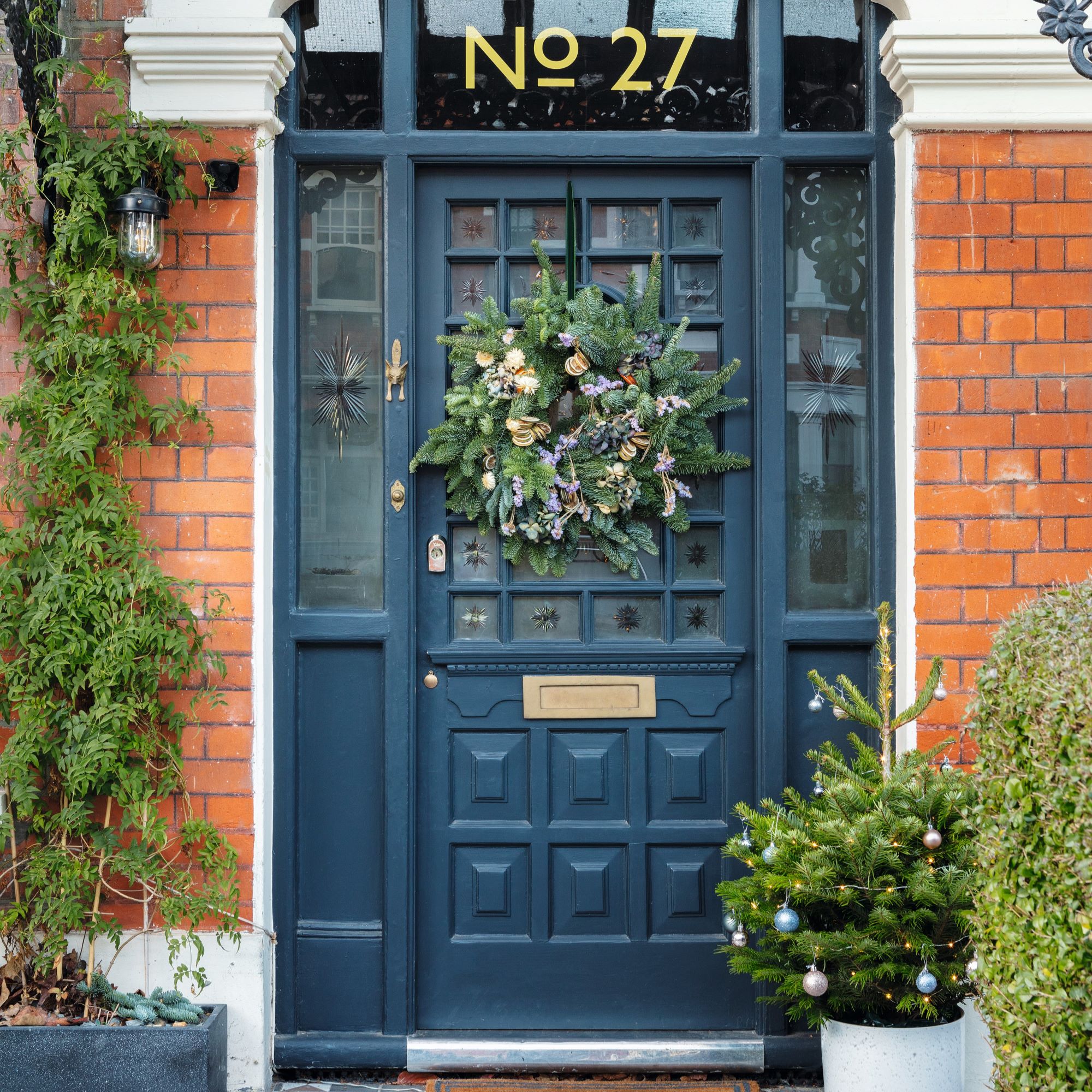 How to make a house look more inviting - 8 ways to quickly boost your house’s appeal in time for Christmas
How to make a house look more inviting - 8 ways to quickly boost your house’s appeal in time for ChristmasMake visitors feel welcome from the second they step foot on your property
By Vanessa Richmond